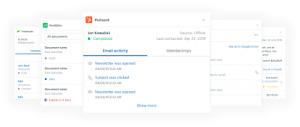Starting a business can be stressful, so why make it more stressful by not getting those online leads you desire? Search Engine Optimization (SEO) should be a priority for startup businesses because it encourages the online traffic that your startup business can benefit from. If you have a startup business, follow these five local SEO tips to see improvement for your local ranking.

1. Create a Google My Business listing.
When it comes to online presence, Google My Business (GMB) is the hub spot for all things local search. When someone is looking for a restaurant, store, or other business around them, Google is going to favor businesses that utilize GMB listings. As a startup, creating and/or claiming your business listing should be the first thing you do for your SEO efforts. It is critical that you take advantage of all of the GMB features, including Posts, Photos, Q&A, Reviews, and much more once you add your business. Google will thank you for it, customers will thank you for it, and you will thank you for it.
2. Build an SEO-friendly website.
The goal of creating an SEO-friendly website is ultimately to increase the quality and quantity of organic traffic to your site. When it comes to building an SEO-friendly website, there are a few essential aspects to benefit from. These aspects are keyword research and metadata.
Keyword Research
When someone conducts a search on Google, their search queries are made up of what are known as “keywords.” In order to be considered “SEO-friendly,” each page of your website should have a unique keyword or keyword phrase. The reason keyword research is crucial is that, as a startup, you don’t want to spend the time and resources trying to rank for keywords with a 10,000/month search volume. Unfortunately, without any established authority, your website will get buried by companies with more authority than your business. When doing keyword research, your best shot at ranking is to aim for keywords that get between 400 and 2,000 searches per month.
Metadata
Metadata is a large portion of your on-page content throughout your site. Without metadata, you cannot fully optimize your website for better search presence. This includes URLs, browser titles, headings, descriptions, and alt text for your images. By utilizing these aspects of metadata, you are giving search engines a better understanding of what your webpage is about to give users more accurate search results. Just like keywords, each page on your website should have unique metadata.

3. Establish online authority.
Establishing online authority may seem complicated, but it is essentially just a way to show online users that you are a legitimate, credible business. With a startup business, establishing online authority is even more critical since you don’t already have a reputation built. Three of the most significant authority factors include, but are not limited to, content, social media, and backlinks. We have already touched on quality content, but let’s quickly dive into the other two factors.
Social Media
Establishing an online following of organic, engaged followers is just about the best thing you could do for your social authority. In addition to a following, it’s essential to keep your followers engaged and expecting. Being consistent with your posts and how many times you post per week is an important factor in building your social authority.
Link Building
Backlinks to your website are probably the most important factor in establishing online authority. Getting quality websites to link back to your site shows search engines that your business is a trusted source of information. As a startup, that is precisely what you need. However, don’t seek out just any backlinks. Having backlinks come from shady, untrustworthy sites can give your business that same reputation!
4. Track your results.
The best way to track the results of your SEO efforts is to set benchmarks. For startups, benchmarks will be zero, since there is no data to work with quite yet. Once you are about three months into your SEO efforts, you’ll be able to see actual results and if your efforts have been paying off.
Bring in the Dough with Local SEO
Google doesn’t care if your business is brand new or if it has been around for ages. It’s looking for businesses that prioritize customer experience and engagement rather than monetization. By using these local SEO tips for startups, you should have no problem improving your startup’s local ranking while watching the leads (and money) flow in.
Digital & Social Articles on Business 2 Community
(24)





